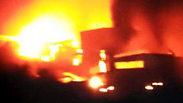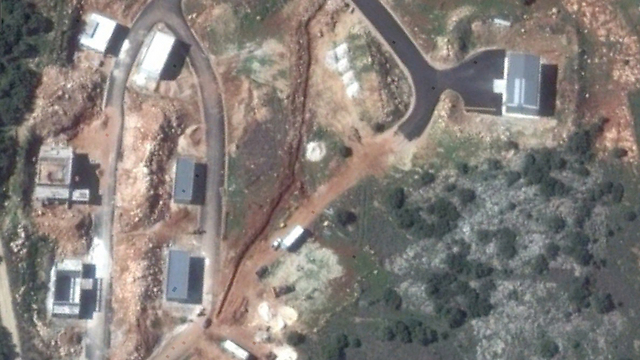

Syrian regime caught in catch-22 with 'Israeli' strike
Analysis: On the one hand, the world understands Syria is a criminal country carrying out war crimes; on the other hand, the Assad regime is unable to refute the accusations on the production and use of chemical weapons in the facilities allegedly attacked by Israel, as it would have to invite inspectors to a site in which it likely has something to hide.
A day before the strike, the United Nations Security Council received the conclusions of a commission of inquiry which found that the Assad regime had carried out at least seven chemical attacks on citizens from March to July 2017, including April’s brutal attack in Idlib, in which 80 citizens were poisoned to death after a Syrian fighter jet released toxic gas, which included sarin. While Syria keeps producing chemical weapons and making military use of them, who will defend Syria when its chemical weapon facilities are attacked?
Whoever gave the order to strike likely also made sure that the reports around the strike would not only focus on the weapons designated for Hezbollah, but also on the fact that the facility produces chemical weapons. And sure enough, the opposition’s broadcasting channels, which rushed to report the strike, reiterated the message that the unidentified planes had attacked such infrastructures, as well as missiles intended for Hezbollah.

For more than a year and a half now, Assad has been feeling confident enough to resume the activity of the CERS centers’ labs and factories, which produce short- and medium-range Fateh rockets and M-600 missiles. All these weapons can already be found on Lebanese soil as well.
The Syrian regime is caught in a catch-22. On the one hand, the world understands Syria is a criminal country which is carrying out war crimes; on the other hand, the regime is incapable of refuting the accusations on the production and use of chemical weapons in the attacked facilities, as it would have to invite inspectors there to do so while it likely has something to hide. So Syria is hit—and the world is silent. Even the Russians aren’t backing Assad here.
Russian Foreign Minister Sergey Lavrov said last week that there was no truth to the reports that Israel’s interests in Syria weren’t being taken into account by his country. Indeed, the only Russian response to the strike was a news agency’s headline which quoted the Israeli media quoting the Arab media. Israel, according to the Russian report, has no interest in meddling in Syria's internal affairs but is fighting against threats to its security from Syria, including against Hezbollah forces.
The IDF spokesperson couldn't have articulated this better. This means Israel can keep operating in Syria under certain parameters providing they do not conflict with Russian interests. On the other hand, Israel is incapable of influencing Russia when it decides to prevent a condemnation of the Hezbollah organization in the UN.
The conclusion the Iranians can draw from the latest incident is that the Russians won’t prevent Israeli attacks on Iranian forces in the Golan Heights, an area where the Russians have no clear interest.
If the strike was indeed carried out by Israel, the fact that it took place in the middle of a military exercise in the Northern Command cannot be ignored. The unusual number of flights during the drill could have served as an opportunity to surprise the enemy and destroy a facility which is likely under tight aerial defense and on a heightened state of alert. An aerial exercise can also be used to mislead the enemy.















